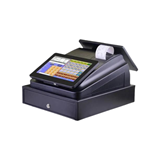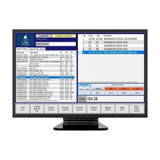The management of working capital involves managing these 4 aspects of the company’s operations.
- Cash
- Accounts payable (money owed to suppliers)
- Accounts receivable (debts that are owed to the company)
- Inventory (stock, work-in-progress and equipment)
Effective management of working capital will increase profitability of the company. It also allows executives to focus on the business strategy and sales without concerns of potential insolvency.
Why is cash flow management important?
The number one reason that companies fail is due to a severe lack of working capital. Problems arise when the company cannot pay its employees or creditors even though there are sales and profits. When this pattern continues, the company is unable to reinvest in the business which affects its growth. Key areas to keep a tight grip are;
Debt
- Slow paying customers can severely affect your working capital.
- Chasing un-paid invoices is very time consuming and often balanced between maintain the relationship and not demanding payment.
- Implementing clear debt collection policies and stating payment terms on the invoices and in person in advance will help manage debtors.
Inventory and stock
- Understand the stock turnover and demand cycles for your product to keep a low level without running out of stock. In practice, this is difficult especially when large quantities are orders or produced for to lower the cost price.
- Analyse your raw materials, work-in-progress and finished goods and invest in sophisticated stock control system to keep track of stock levels.
Creditors
- Companies delay paying suppliers to keep their cash balances high to cover wages and other necessary expenses etc., however, the disadvantages to this strategy are;
- Suppliers will reluctantly give you discounts.
- You may not superior service and rate you a lower priority.
- Your industry reputation will suffer and other will be less likely to deal with your company
Cash
- Cash includes all of the money that a company has including bank accounts, short-term investment that can be quickly accessed when needed.
- Companies can be profitable, but short of cash because of;
- Spending on material before goods are sold, as expenses need to be paid before sales and profits come in
- Need to purchase capital equipment. Tools, machinery, vehicles and other commercial equipment is necessary to make and or deliver the goods, before cash comes in
- Other liabilities such as loans or tax need to be paid without incurring a penalty.
- Customers delay payment which does not meet your payment terms.
Cash Flow Statement
The cash flow statement reflects a company’s liquidity. It includes only inflow and outflows of cash and excludes transactions that do not directly affect cash receipt and payments. The financial statement details 3 types of financial activities such as operating activities, investing activities and financing activities.
The statement is extremely valuable to management and investors because it is untended to;
- Provide information on the company’s liquidity and solvency and its ability to change cash flows in the future
- Provide information for evaluating changes in assets, liabilities and equity
- Indicate thee amount, timing and probability of future cash flows
Cash from Financing
Financing activities include the inflow of cash from lenders such as banks and investors or shareholders. Cash is also used to purchase long-term assets and property plant and equipment which include capital expenditures and short-term investment sold.
A good short-term strategy is to invest in options like shares, term deposits, corporate bonds, vehicles where the assets can be sold when cash is needed.
When applying for unsecured short-term finance, alternative lenders look at net cash flows between revenue and operating activities when approving your loan, in addition to other criteria such as your credit score, industry risk and years in business. Your cash flow statement should show confidence in your ability to manage your cash flow and repay the loan.


















